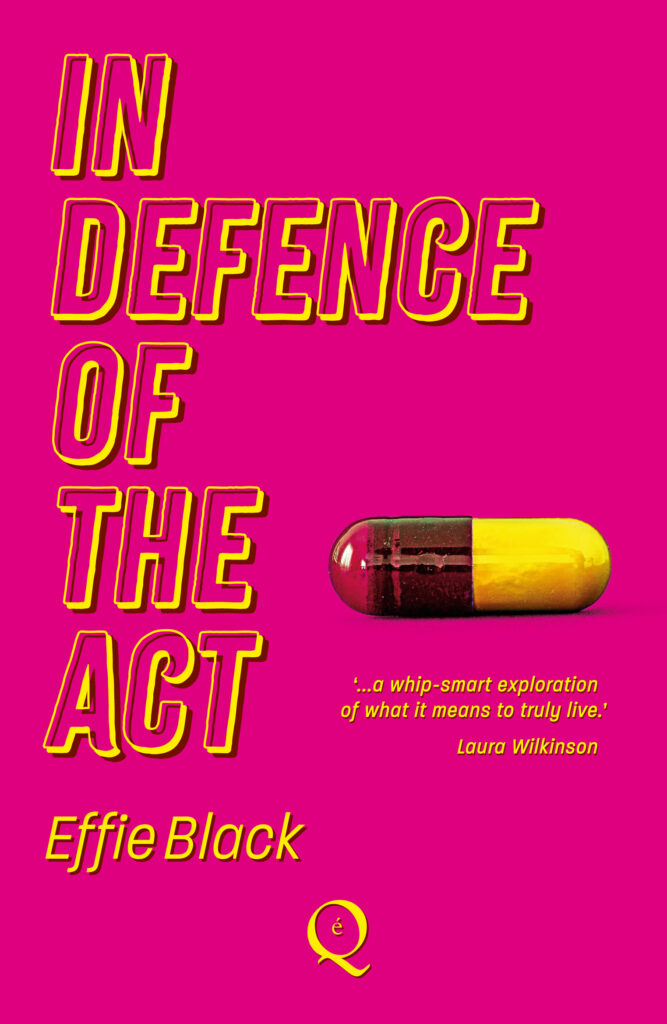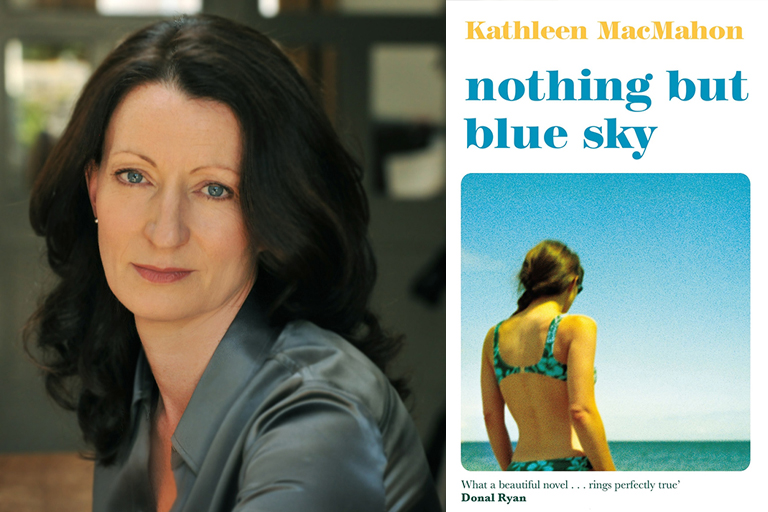Edgy, intelligent and courageous, In Defence of the Act by Effie Black tackles the contentious topic of suicide through a narrator whose set views on the subject are suddenly starkly called into question.
‘A hilarious, poignant and uplifting essay on the benefits of suicide (or so you would believe).’
Indira Varma

Describe your book in one sentence as if you were telling a friend.
It’s a queer novel about suicide and death and science and grief and guilt and family trauma, but it’s kind of funny sometimes too.
What inspired you to write your novel?
I started writing the novel at a time where there seemed to be a lot of death happening in my various social circles, and I could feel the heaviness of it everywhere. It was almost inevitable that something I wrote then would contain grief as a theme, and perhaps natural that the protagonist, Jessica, would be obsessed with death. Once I’d imagined this character who secretly believes suicide is a good thing, evolutionarily-speaking, she intrigued me. I wanted to get to know her, to understand how she could think this way and what might make her question her beliefs, and I hoped readers would feel the same. I knew Jessica’s views might be an affront to some people at first, but this was intentional, as I wanted to provoke thought and discussion. Suicide is common yet it can still be a taboo subject, and I think this tendency we have to shy away from it can have a detrimental impact on those affected by suicide. We should feel able to talk about it more freely, to explore it fully, even if some of that exploration is tough and unpalatable.
Which part of the book was the most fun to write? Which was the most challenging?
There are a couple of awkward and absurd scenes in the novel, such as the resilience session Jessica sits through in the opening chapter, or the incident in a cafe that appears later in the book, and it was fun to write about those types of semi-ludicrous everyday occurrences. I also enjoyed using Jessica’s extremely positivist, scientific mindset to explore different ways of viewing the world. The darker sections were more challenging to write. I still enjoyed working on them, and it was probably cathartic, but I often found myself becoming emotional while writing Jessica’s first-person accounts of traumatic experiences and grief.
If you could take one book to a desert island, what would it be and why?
It would obviously have to be something I love and wouldn’t tire of, but a lot of books could fit that bill for me. So additionally, it would have to be something hefty that I wouldn’t get through too quickly, and that could double up as a tool/weapon on the island. Using those criteria, I would choose A Little Life by Hanya Yanagihara. In hardback.
Where is your favourite place to write?
I’d love to have a glamorous answer to this question, but up until this point I’ve done all my writing crouched over a laptop on a dining table, or a cluttered desk in a bedroom. This hasn’t done wonders for my eyes or back, so I would like to improve my desk setup, maybe move it somewhere with a nice view and add an ornamental cactus or two, so I can one day have a far prettier answer. For now, I’d have to say my bedroom desk just after I’ve done a big tidy.
If you hadn’t been a writer, what would you be doing now? Where would you be?
I would always have wanted a creative outlet to express myself, some way to process feelings and ideas. I love music, so if I had any musical talent whatsoever, I would try to express things that way. Sadly, I do not. So I would probably still be trying to tell stories but in another medium, through film or theatre or visual art.








